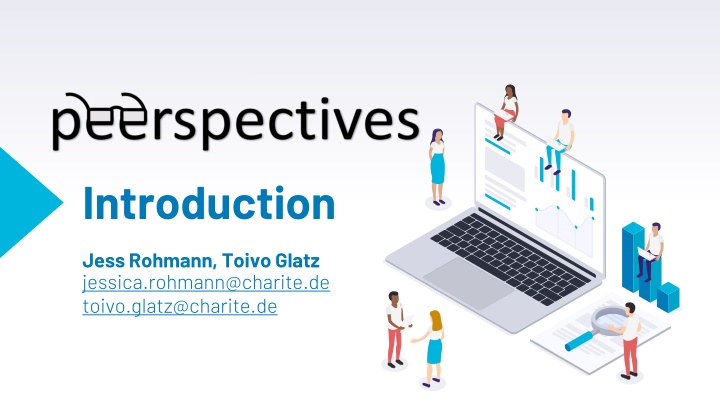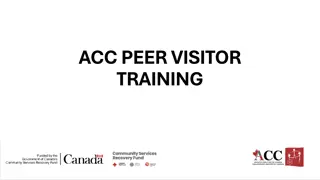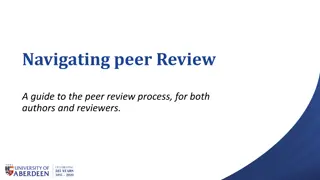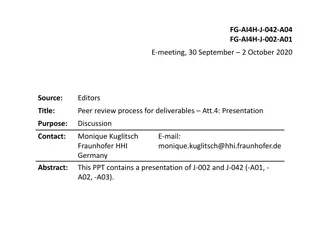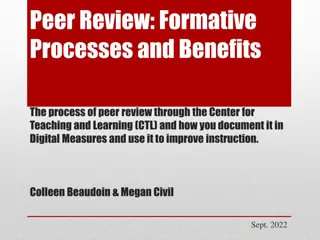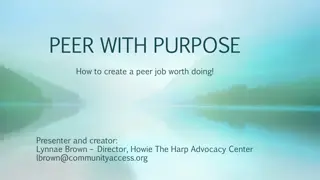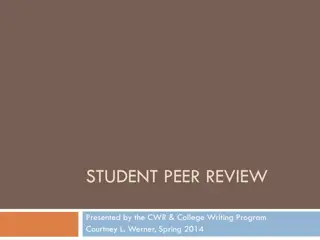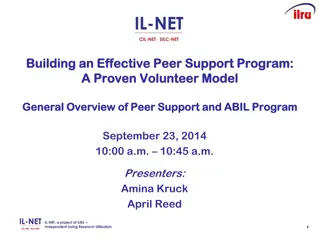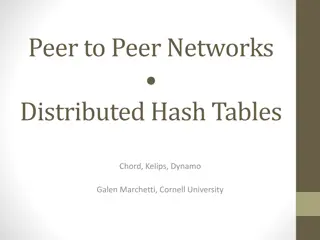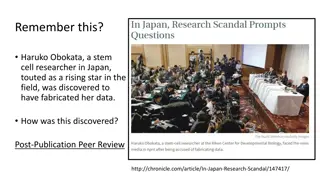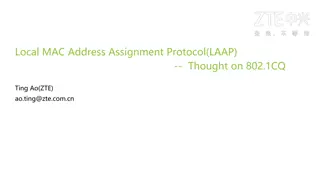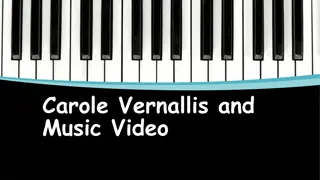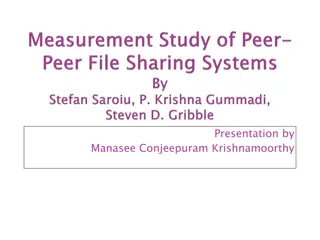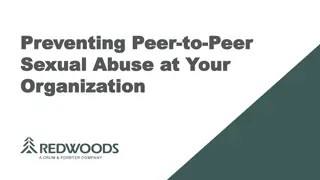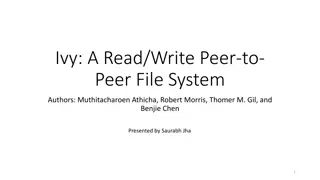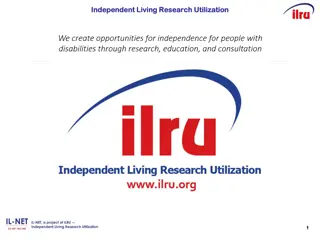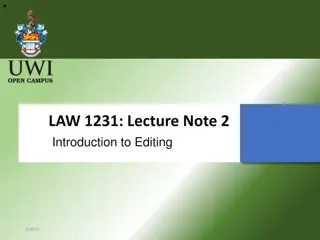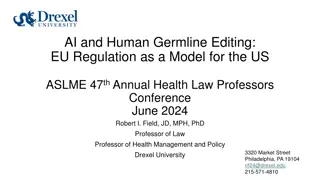Comprehensive Training in Peer Review and Scholarly Editing Processes
This training program offers modern insights into peer review and scholarly editing, providing hands-on experience through workshops and interactive lectures. Participants learn critical thinking, clear communication, ethical guidelines adherence, and concepts of open-access and open science.
Download Presentation

Please find below an Image/Link to download the presentation.
The content on the website is provided AS IS for your information and personal use only. It may not be sold, licensed, or shared on other websites without obtaining consent from the author.If you encounter any issues during the download, it is possible that the publisher has removed the file from their server.
You are allowed to download the files provided on this website for personal or commercial use, subject to the condition that they are used lawfully. All files are the property of their respective owners.
The content on the website is provided AS IS for your information and personal use only. It may not be sold, licensed, or shared on other websites without obtaining consent from the author.
E N D
Presentation Transcript
Introduction Jess Rohmann, Toivo Glatz jessica.rohmann@charite.de toivo.glatz@charite.de
Purpose Modern training and insights into the structure, purpose, and conduct of the peer reviewand the scholarly editingprocesses Training includes a series of interactive lectures and mentor-guided small group workshopsproviding hands-on experience in reviewing of submitted research papers 2
Potential conflicts of interest Peerspectives is currently funded by a research grant from the Volkswagen Foundation. In the past: starter funding from a SPOKES Wellcome Trust Funded Translational Partnership Fellowshipvia BIH QUEST Center Editorial staff from BMJwere consulted in the conceptualization and some editors were involved in the scientific evaluation study. We are passionate about improving peer review and training for doctoral students. We serve as peer reviewers for various scientific journals. 3
Institute of Public Health @ Charit Instructors: Toivo Glatz, Jess Rohmann, Tobias Kurth Coordination: Claire Dickson-Burke, Meg Forrest, Nadja W lk Current Editor-Mentors Insa Feinkohl (Univ. Witten/Herdecke, Germany) Kristina Fi ter (Univ. Zagreb, Croatia) Peter Tennant (Univ. of Leeds, U.K) Trudy Voortman (Univ. of Stanford, U.S.A) Annika Hoyer (Bielefeld University, Germany) Mariska Leeflang (Univ. Amsterdam, Netherlands) Lars Hemkens (Univ. Basel, Switzerland) Matthieu Domenech de Celles (Max Planck Institute for Infection Biology, Germany) The BMJ, London, UK Tim Feeney, Editor Elizabeth Loder, Head Research Editor Sara Schroter, Senior Researcher Partners 4
Course Structure and Overview I. Pre-Course Assignment II. Lectures III. Workshops IV. Post-Course Assignment Four mandatory, hands-on workshops led by one editor-mentor; collaborative peer review report preparation Independently completed peer- review assignment mirroring real- world conditions Four mandatory, interactive lectures held over Zoom with take-home assignments Independently completed peer- review assignment mirroring real-world conditions 5
I. Peerspectives: Overarching training course objectives Explain the role of scientific journals, editors, and peer reviewers as parts of the scientific process in biomedical fields Promote clear communication and efficiency in the review process Stimulate critical thinking and constructive, scientific critique Encourage transparency and adherence to ethical and methodological guidelines Introduce and explore open-access, open science, and open review concepts Develop an understanding of what reviewers and editors are looking for in scientific writing and improve the quality of participants future submissions 6
I. Lectures: Format 4x 3 hours (with breaks) On Zoom, includes interactive polls, discussions & take-home assignments 7
II.Workshops: Format Small groups will be assigned 1 editor-mentor + 5 trainees 4 suitable live BMJ/BMJ Medicine manuscripts assigned to the group The PDF of each manuscript (+ supplement) will be uploaded to a specifically prepared, secured channel in PaperHive One trainee will take the lead for each manuscript; all trainees will draft preliminary peer review report together Small group will meet on Zoom to discuss article & finalize review report prior to submission to the journal (open review, all group members named) Mentor will circulate final journal decision 8
A note on AI Tools All participants must abide by the official BMJ Policy on Using AI Tools: If reviewers use AI technology to improve word processing and language, they should declare this when submitting their reports. However, reviewers should preserve the confidentiality of the peer review process by not putting unpublished manuscripts that they are reviewing for BMJ Journals (or information about them) into publicly available AI toolswhere the securityofthe confidential information cannot beguaranteed. 9
A note on AI Tools All participants must abide by the official BMJ Policy on Using AI Tools: If reviewers use AI technology to improve word processing and language, they should declare this when submitting their reports. However, reviewers should preserve the confidentiality of the peer review process by not putting unpublished manuscripts that they are reviewing for BMJ Journals (or information about them) into publicly available AI toolswhere the securityofthe confidential information cannot beguaranteed. The pre-/post-assessments, homework assignments, and group review reports must be entirely original work and should not be AI generated. If AI tools are used to improve language for any course-related work, this must be declared. No parts of unpublished manuscripts should be entered into AI tools at any point. All student work may be screened for AI-generated content. In the case that a student is found to have used AI inappropriately in course-related work, they may be dismissed from the course and will not receive ECTS credit. 10
Q&A Any logistical questions? See the course syllabus 11
